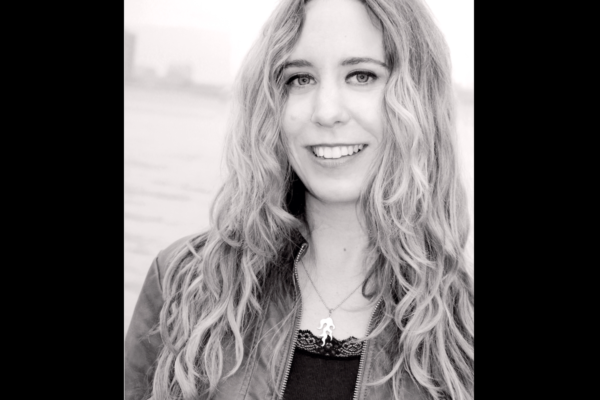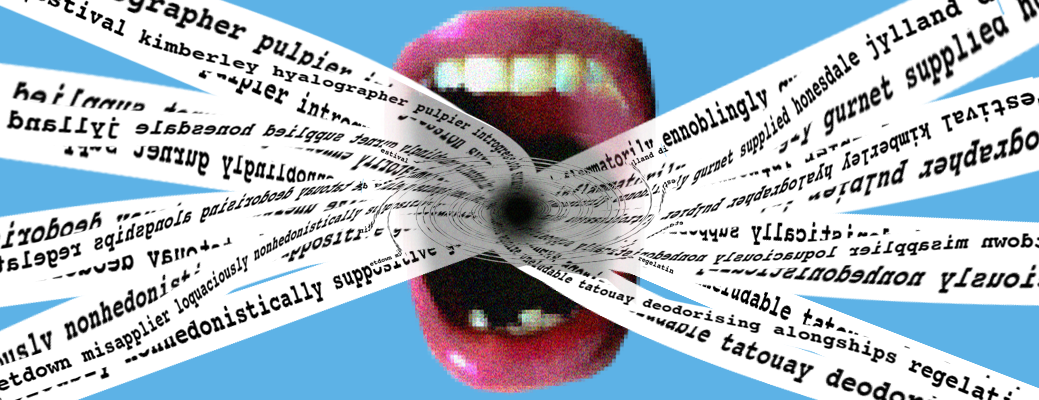Chloe Caldwell is the author of three books, I’ll Tell You in Person (2016), Women (2014), and Legs Get Led Astray (2012), which will be reprinted in 2017. Her work has been published in Lenny Letter, Vice, Salon, Nylon, Men’s Health, and in multiple anthologies. She teaches creative nonfiction at Catapult, a publishing agency, publication, and educational center in New York City and she lives in Hudson, New York.
When I took a Catapult class with Chloe I was struck by her blend of intellectual humility and insight, her straightforward approach to reading literature, and her down-to-earth vibe. The Village Voice agrees: “Caldwell is refreshingly regular and, German sojourn notwithstanding, unspoiled. Not once does the word ‘internship’ appear.” Chloe is not the internship type, not a woman who always wanted to be a writer and schemed a path to that end. Her teaching (and writing) has groundedness, a street cred, so to speak.
Kayla Tanenbaum is a student at Columbia University’s graduate writing program in the nonfiction concentration. Her bimonthly column features interviews with authors that reveal stories, lessons and realizations of interest to all readers – and to other writers, in particular – and pairs best with these authors’ works, as they emerge, throughout the year. Tanenbaum’s candor and wit slice clean lines across her subjects’ ideas. As an interviewer, she candidly reveals as much about the life of a writer in New York – hers and her subjects’ – as she exposes about the success and authorial presence to which we all aspire.
Kayla Tanenbaum: How do you feel your lack of formal education has influenced your work and your career, both positively and negatively?
Chloe Caldwell: Not going to school after High School threw me into the “real world” immediately. I was more interested in working at cafes and in retail; it’s what excited me, to have a job. I was smart enough to know I would have dropped out or flunked out of college, so I’m glad I didn’t go. It also puts me in the position of having zero debt.
KT: How do you know you would have dropped or failed out?
CC: I knew because I failed most my high school classes, save for choir and English. I wasn’t good at “showing up” or dealing with authority. I didn’t know what I would have gone to college for. I probably only would have gone for the social aspect. Also, I couldn’t get in anywhere because my grades were so bad. I did go to Hudson Valley Community College for one year before I moved to Brooklyn.
KT: Speaking of money, can you can you speak about the realities of being a working writer? In terms of making enough money, and in terms of the joys and the struggles?
Chloe Caldwell: I love the freedom of working from home, on planes; traveling whenever I want, having unconventional weekdays, not having a commute, and carving out time for my own projects. I’m self-motivated enough to be productive most days but, if I feel like stopping and watching an episode of Better Things or High Maintenance, I will.
The struggle is money. I have none. Most people that want to be writers seem to be delusional in that regard.
The multitasking and juggling and being your own boss can get very stressful. You constantly have to mark your calendar for when you are owed a check, and oftentimes getting a check takes a long email thread. Writers are making a lot less than you all think. I was 30 before I had a car or bought my own mattress. You have to live pretty uncomfortably, at times. That’s the tradeoff.

KT: Given these economic realities you’ve had to face, I’m interested in your take on the idea that that only people with rich parents can be in the arts or in academics?
CC: In terms of my own experience, I agree. My parents didn’t have money to get me in to art school or pay my way through college. But my parents made me into a writer by always being supportive of the arts, buying books and music for me, and taking me to concerts and movies. There’s something really special in that.
KT: One way I know you get money is teaching. Because you were my teacher! What’s your philosophy? How do you teach someone to become better?
CC: I don’t know if I have a philosophy; you’ll have to ask me again in a few years. I do love quoting David Sedaris in The Learning Curve: “I am the only person being paid to be in this room.” As for making someone better, I like to give concrete writing tips that I’ve learned from my editors. They are normally tips that I wished I learned earlier, like not to use the words “thing” and “very” and that if you do something once, you must do it three times. I also have realized just being there for your students is huge: showing up, being a guide, someone who is living the life of a working writer. I enjoy demystifying what that’s like for students. I remember that feeling of thinking that everyone else has connections but you don’t. Everyone else knows what they’re doing, but you don’t. I love breaking that down, showing my students that if I made it to where I am, having started with zero degrees or connections, anyone can.
KT: You’re also an editor. What’s your work process or philosophy there?
I think of myself somewhere between a midwife and an editor. I love doing what I think of as “casual line edits.” Since I’m not a classically trained look at the manuscript or essay, I edit with the point of view of a reader picking up a book in a store, showing the writer what my train of thought would be, as a regular reader. I love showing the writer where in their work I would be confused, where I would laugh…When writing nonfiction, students often leave gaps in the story because they’re too close to it. It’s also tough to present characters in a fair way when we’re close to them That’s something I try to encourage students to think hard about.
KT: You’re known as a “confessional writer.” Do you feel this label is gendered? Do you ever hesitate to share some or the more personal, less flattering stories? What motivates you to include them?
CC: Sure, it’s gendered. I just wrote an essay called What I Think of The Fact That You Keep Asking Me What My Family Thinks of My Writing speaking to my thoughts on this. I don’t know what motivates me. I guess I’m just weird. It doesn’t stress me out that much since I started doing it at a pretty young age. At this point, it’s just part of me. Since I was always reading unflattering stories as a teenager in Chicken Soup For The Soul [laughs] and then later The Sun Magazine, and dozens of memoirs, I thought it was normal to write that way.
KT: What’s it like to write two books of personal essays? Did the second book have material that for some reason didn’t make it into the first? Did you feel you had to mine your life for material?
CC: I wrote the first book in my early twenties. The second book included experiences I hadn’t had yet, and they were longer, more fleshed out essays, rather than short punch of more experimental writing, lists that made up a lot of Legs Get Led Astray. I’ll Tell You in Person was much more thoroughly edited as well. There are half the number of essays in I’ll Tell You in Person than Legs Get Led Astray, but they are all much longer. LGLA was more “fun” to write, like short bursts of nonfiction, whereas ITYIP is more thoughtful, pensive, exploratory.
KT: Do you ever feel pressure to “do it for the story,”? Do you ever experience that double consciousness that as something is happening in real life, you’re already thinking about how you’re going to write it?
CC: No. In my early twenties I was into that, briefly, but quickly realized it wasn’t a safe way to live. But of course even now if I’m traveling and something is amiss, I can comfort myself by telling myself that someday I may write about it.
KT: Why do you often write essays? What draws you in about the form?
I like the idea of wrestling with ideas on the page, and I love to read work that is voice-driven rather than plot-driven.. The essay appeals to me with its range—in this post-Trump world, everyone is expressing themselves via essays, so I love how essays can cover politics, but it’s also possible to write an essay about hating carpet, a la Meghan Daum’s Carpet Is Mungers.
KT: To what do you attribute your success?
CC: Tunnel vision. I set my life up very early on in a way that let me be a writer. This means living at home at times, not having a car or nice apartment, not being in relationships; all so that I could write. I travel to give my writing exposure, and didn’t have responsibility for anything else.
KT: Do you ever want a more conventional life?
CC: Sure, but I don’t know what it would look like since I have no skills or degrees. I’d most likely be waitressing or working retail, and I’m glad I am not. But there are times I wish it had been something else I’d have had a knack for: something less complicated than being a writer, that pays the bills more easily. That said, I love so much about my life these days, and feel so lucky to be doing what I like to do.




